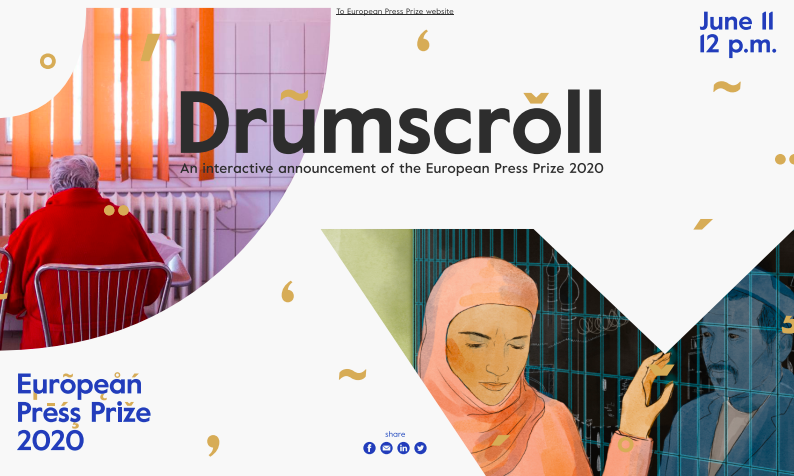Luminate joins the European Press Prize as member organisation
We proudly announce that the global philanthropic organisation Luminate has joined the European Press Prize foundation as a member.
This is an important step because, as Maggie O’Kane, European Press Prize board and executive director of the Global Media Campaign to End FGM, said: “Luminate joins us with a wealth of expertise and a strong network within the European media sector. A valued new member as we strive to amplify the impact of journalism across Europe. We look forward to working together.”
Empowering people and institutions to build just and fair societies
Luminate is a global philanthropic entity focused on empowering people and institutions to work together to build just and fair societies.
It supports innovative and courageous organisations and entrepreneurs around the world, and advocates for the policies and actions that will drive change across four impact areas: Civic Empowerment, Data & Digital Rights, Financial Transparency, and Independent Media.
Their mission fits perfectly our goals. Luminate Principal Gauri van Gulik explained: “Luminate believes in a vibrant, free press that uncovers the truth and holds power to account. We’re proud to support the European Press Prize as a catalyst for exactly that: investigative, independent journalism from across the region.”
The European Press Prize keeps growing
Since 2012, when it was founded in Amsterdam, our organisation has been growing exponentially, thanks to the joint effort of our partners and the network of journalists that support us.
Luminate joins the existing members Vereniging Veronica, Jyllands-Posten Foundation, Democracy and Media Foundation, The Guardian Foundation, Agora Foundation, MDIF, Irish Trust Limited and Thomson Reuters Foundation.
Together, we aim to encourage and reward quality journalism across Europe, not only through our yearly Prize, but also via activities designed to help journalists connect and grow stronger together.
European Press Prize 2020. Click, scroll, celebrate.

2020 saw us confronting a challenge many organisations had to face: because of the coronavirus pandemic, gatherings and events have been canceled, to guarantee the security of people. The European Press Prize 2020 award ceremony, scheduled for June 11, was affected by these safety measures.
So how do you celebrate an event that normally takes place in a different European city every year, bringing together journalists from everywhere in the world, during this emergency?
We decided to turn this problem into an opportunity. We brought quality journalism to everyone who wants it.
Journalism is for everyone, everywhere
In our mission to support excellent journalism, we aim to bring journalists together, providing them with a network thanks to which they will grow stronger. Indeed, a stronger journalism will provide a better service to the public – which is, in the end, the true mission of every journalist.
We had already been doing this since the beginning, translating to English all the journalism items that reached the final stage of the Prize to make them available to a wider audience.
But moving our event to an online platform gave us the opportunity to extend our reach even further, delivering our – and primarily our laureates’ – content to every device that will visit europeanpressprize.com.
That’s how Drumscroll was created.
Drumscroll, the European Press Prize 2020 platform
At 12 pm on June 11, we will announce the winners of the different awards of the European Press Prize 2020, and our website will be completely transformed.
It will become Drumscroll, an interactive space, an immersive environment created to let users “experience journalism” in its wholeness.
Our audience will be able to join our jury in the journey from hundreds of submissions to the five winners of our awards: Investigative Reporting, Distinguished Reporting, Opinion, Innovation, and Special Award.
They will have access to videos, pictures, and interviews related to the shortlisted articles and, most importantly, to the winning pieces, to better understand journalism and build a stronger connection with the professionals behind each story.
In times of quarantine and social distancing, Drumscroll is an opportunity to gather around one thing that keeps societies together: the stories of the people that live around us.
Join our event on June 11. Click, scroll, and celebrate quality journalism with us.

